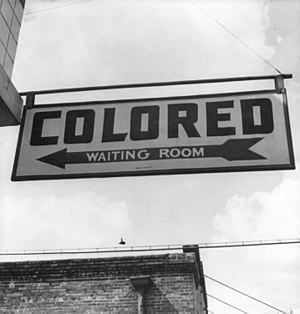 Image via Wikipedia
Image via Wikipedia
In the next two posts, we're going to look at some of the caselaw supporting this proposition.
In Re Student With a Disability 108 LRP 25080 (SEA WV 11/12/7) One of the fundamental concepts of the IDEA is that each child with a disability should receive an IEP that is individualized to his individual needs. The IDEA does not concern itself with labels but whether a student with a disability is receiving a free and appropriate public education. A disabled child's IEP must be tailored to the unique needs of that particular child. The child's identified needs, not the child's disability category, determine the services that must be provided to the child; In re Student with a Disability 108 LRP 26467 (SEA WV 12/19/7) The category of eligibility is not relevant once a student is determined eligible; services are determined by the individual needs of the student and not her categories of eligibility; In Re Student With A Disability 52 IDELR 239 (SEA WV 4/8/9) (same);
Pohorecki v. Anthony Wayne Local Sch Dist 637 F.Supp.2d 547, 53 IDELR 22 (N.D. Ohio 7/23/9) Court held that IDEA does not require that children be classified by disability. IDEA requires that a child who needs special education and related services receives an appropriate education. Court specifically rejected an alleged denial of FAPE based upon refusal to add another category of eligibility.
Seladoki v. Bellaire Local Sch Dist Bd of Educ 53 IDELR 153 (S.D. Ohio 8/28/9) Court ruled that choice of methodology by school district must be based upon the individual needs of a student. Court rejected parent’s argument that all children with autism require 30-40 hours per week of ABA services.
Anoka-Hennepin Indep Sch Dist 50 IDELR 147 (SEA Minn 4/28/8) District provided FAPE where its IEP met the child’s needs; fact that child not found eligible in a particular category that parent wanted is not relevant because services are not to be determined on a categorical basis.

